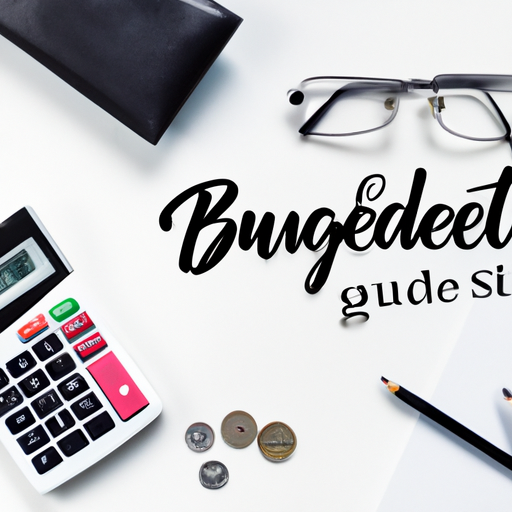Tips for Creating an Effective Personal Budget

Tips for Creating an Effective Personal Budget
Introduction
Creating an effective personal budget is one of the most important steps towards financial freedom and independence. It allows you to see where your money is going, helping you prioritize your spending, save for emergencies, and reach your financial goals faster. Here are some tips to help you create an effective personal budget.
Understand Your Income and Expenses
Firstly, understanding your income and expenses is a key aspect of creating a budget. Compile all your income sources, such as your salary, bonuses, and any extra income you might have. The next step is to note down all your expenses. This includes rent or mortgage, bills, debt payments, groceries, and any other expenses. Remember to include occasional expenses such as annual insurances or vacations.
Create Budget Categories
Once you have a clear understanding of your income and expenses, categorize them. This makes it easier to visualize where your money is spent. Some common categories include housing, transportation, food, entertainment, and savings. Then, allocate a specific percentage of your income to each category. A good rule of thumb is the 50/30/20 rule, where 50% of your income goes toward needs, 30% toward wants, and 20% toward savings and debt repayment.
Use Budgeting Tools
There are numerous budgeting tools available that can simplify the process of tracking your spending. These include apps or online tools that categorize your spending for you. Some tools even allow you to set budget limits for each category, giving you real-time updates on your spending. Using a budgeting tool can take a lot of the hard work out of managing your budget.
Plan for Unexpected Expenses
Unexpected expenses are inevitable. Whether it’s a car repair, medical emergency, or unexpected job loss, these expenses can easily throw your budget off track. That’s why it’s important to factor in an emergency savings fund into your budget, ideally enough to cover at least three to six months’ worth of living expenses.
Regularly Review Your Budget
Finally, remember that your budget is not a set-in-stone document. It needs to be flexible and adapt to changes in your financial situation. Regularly reviewing your budget—ideally once a month—can help you identify any areas where you’re overspending and make adjustments as necessary.
Conclusion
Creating an effective personal budget is a vital step towards managing your finances. By understanding your income and expenses, creating budget categories, utilizing budgeting tools, planning for unexpected expenses, and regularly reviewing your budget, you can be on your way towards financial freedom.
Counting pennies and making small savings might feel cumbersome at the start. But think of it as a price to pay for long-term financial stability. With steady efforts and a little discipline, you will eventually witness a significant improvement in your financial health, granting you a sense of confidence and freedom you didn’t have before.
* The post is written by AI and may contain inaccuracies.





